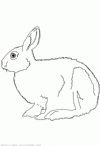|
ESL Forum:
Techniques and methods
in Language Teaching
Games, activities
and teaching ideas
Grammar and
Linguistics
Teaching material
Concerning
worksheets
Concerning
powerpoints
Concerning online
exercises
Make suggestions,
report errors
Ask for help
Message board
|
ESL forum >
Games, activities and teaching ideas > FUN WAY TO TEACH THE PRESENT SIMPLE
FUN WAY TO TEACH THE PRESENT SIMPLE
|

mandm

|
FUN WAY TO TEACH THE PRESENT SIMPLE
|
Hi teachers!
I was wondering if you know any interesting activity, way, method or game to teach the present simple to 11 year-old students. I mean something different to a board explanation and a grammar chart, something appealing and atractive that makes students feel interested in the topic.
Have you got any suggestions? How do you teach it? Do students pick it up easily?
Thanks in advance!!
Hugs
|
10 Jan 2010
|
|
|
|

RabbitWho

|
http://www.eslprintables.com/buscador/buscar.asp?nivel=any&age=0&tipo=any&contents=present+simple#thetop :)
I don �t teach the earlier levels so I don �t have anything personally or present simple
|
10 Jan 2010
|
|
|

HOLYMARY_852

|
Present simple will comprise of the sentences which describe actions of the routine type, the habitual or repeated actions. The strucutre �Subject + verb in the simple present form may usually accompany an adverb of frequency. You may start by asking the students their daily routines like getting up from the bed, brushing teeth, taking bath, having breakfast, going to school, returning from school, eating breakfast, lunch or dinner, doing homework, watching their favourite TV programme, going to bed etc. You may also ask them their parents � routine actions. Include the daily activities done in the classroom or school. Include your students � activities which they routinely perform in their neighbourhood. Then there are our hepers in the society like policeman, milkman, postman, painter, doctors, nurses, teachers etc. which perform the routine type of duties, e.g. �The doctor treats the patients.; �The postman brings our letters �, and so on. You may include the routine activities of animals or birds, e.g. A cat alway kills the mice, A snake always fights with a mongoose, A dog guards our houses, �A bird flies in the sky � etc, and there are lot of similar routine actions which you can include in your teaching. Use PowerPoint slides if you can, there are a lot of them available on our website.
Wish you a happy and enjoyable teaching. It �s a noble profession. No other profession involves such a charitabe job as teaching becasue here you share your knowledge most of which is free.
|
10 Jan 2010
|
|
|

puddyd

|
|
Try this ppt.It is present simple transition into past simple , but the lesson plan is all there in the explanation part and you can just elaborate and at each phase draw it out with flash cards etc..to elicit the story.Also at each phase get the ss to discuss each �phase � of the story , eg: "you now have five minutes to talk about how people become rich � then you feedback by saying " so how do you think Bob became rich? what is his job? etc.."You can then get the ss to make up their own story and reinact it out and then you can reinforce it again when you move to the past at a later stage, because the ppt is fully editable.
If you like the idea and ppt but need more explanation then PM me, because I have to teach now and cannot expand on it anymore now.
G �luck
;o)
|
10 Jan 2010
|
|
|

tubisch011

|
|
You can make an activity like "find someone who..". This activity makes your student form a small conversation. Or
You can make an activity like "How to make.." this is also an enjoyful activity. |
10 Jan 2010
|
|
|

mandm

|
|
Many thanks for your suggestions! I have downloaded some of your work. Thanks to all of you! |
11 Jan 2010
|
|
|










